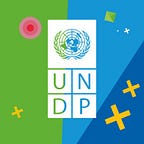New Somali WhatsApp Chatbot Helps in the Fight against COVID-19
It was mid-March and COVID-19 had not yet reached Somalia, but Hafsa and Mathieu were already talking about the inevitable outbreak to come, as well as the many cases of infection in Somali communities around the world.
“One point we kept going back to was the lack of information on COVID-19 in Somali,” explains Hafsa. “Not only was there a very low level of public awareness but also a lot of misinformation being shared online, especially in WhatsApp groups.”
Hafsa and Mathieu started thinking of ways to help counter false information and provide a reliable source of advice to help people stay safe.
Their solution was to bring together all relevant, up-to-date and verified information about the pandemic in a single, instantly accessible place.
So they created a ‘chatbot’ for WhatsApp users — the most widely used platform in Somalia.
What does the chatbot do?
As well as providing general information about COVID-19 and effective ways to reduce risks of infection, the bot answers community FAQs, corrects misinformation, and offers perspectives on how to cope with the quarantine.
Users can send in questions and report misinformation, as well as suggestions for how to improve the content of the bot.
Try it yourself by simply sending the word ‘somali’ to +27 63 444 4350 on WhatsApp or click here to launch the bot directly.
If you want a tutorial, check out this Twitter page with a video showing you how to start the bot. Your messages and numbers will remain anonymous.
How is it different to other chatbots worldwide?
This bot has been designed to address and respond to the specific needs and questions of the Somali population, ensuring sensitivity to culture and socio-economic context.
Most people inside Somalia use WhatsApp, including many who cannot read or write but can communicate with voice-notes.
“This is what gave us the idea of providing a full voice-over for every message in the bot,” explains Mathieu. “This means people can send in questions both in text and by voice.”
The bot also differs from many apps in that it gathers a mix of medical professionals and youth activists on the ground to ensure the bot responds to both technical and practical local questions with reliable, context-relevant and up-to-date info.
Some of the issues raised on the bot are simple, such as “What can you do if you don’t have water and soap?” or “Can a niqab protect and serve as a mask?”, while other queries are more complex and technical, such as “What happens if you are infected but your family shares a single room?”
The project now involves some thirty people as more volunteers are joining, especially from Mogadishu. These are mostly people working with youth and vulnerable communities, as well as medical professionals, translators and graphic designers.
“In the first 24 hours after the bot was activated we gathered almost 700 users, and we now have close to a thousand. We have about 3,000 messages sent through the bot, over 15,000 social media interactions, and we are constantly refining the technology and messaging. Our next push will be to multiply the number of users,” says Mathieu.
They have received encouraging feedback about people using the bot information offline to talk to family and friends, convincing them to practise social distancing and other ways of reducing infection.
The next version of the bot will feature a Somali number that is accessible through the volunteers’ Facebook-page and Facebook-messenger.
They are also working on creating feature videos and new content on combating stigma, providing psycho-social support, videos for deaf-people in both official and local sign-language, as well as more tutorials on how to create masks and protect oneself and others.
Help spread the word and tackle the virus by sharing the bot info on your platform, your mailing-lists and your networks!
This blog is part of a series published by UNDP Somalia’s Accelerator Lab to showcase the responses of Somali innovators in tackling the pandemic and its impacts.
